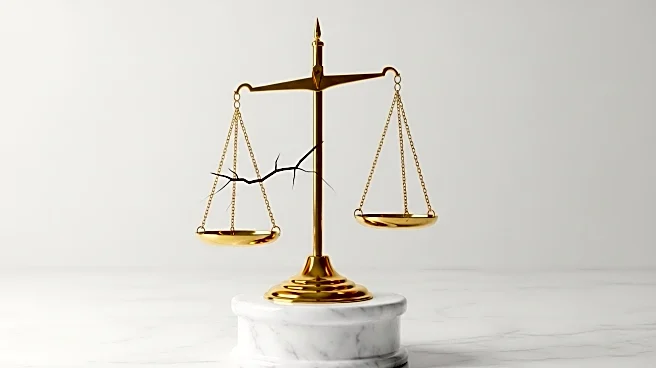What's Happening?
Justice Clarence Thomas has expressed skepticism about the Supreme Court's adherence to legal precedents, suggesting that some may have been based on flawed reasoning. During a public appearance at Catholic University's Columbus School of Law, Thomas stated that settled cases should not be considered 'the gospel' and advocated for a more critical examination of past decisions. The Supreme Court is set to review several significant cases, including Humphrey's Executor v U.S. and Thornburg v Gingles, which could lead to potential shifts in legal interpretations. Thomas's comments highlight his long-standing position on revisiting landmark opinions, as seen in his previous calls to reconsider cases like Roe v Wade.
Why It's Important?
Justice Thomas's remarks could signal a shift in how the Supreme Court approaches established legal precedents, potentially affecting future rulings on key issues. This perspective may influence the Court's decisions on cases involving presidential powers and voting rights, among others. If the Court adopts Thomas's approach, it could lead to significant changes in U.S. law, impacting various aspects of governance and civil rights. Stakeholders, including legal experts and civil rights advocates, may need to reassess their strategies in light of potential judicial shifts.
What's Next?
The Supreme Court's upcoming term will test the influence of Thomas's views as it revisits major cases. Legal analysts and policymakers will closely watch the Court's decisions for indications of a broader re-evaluation of precedents. Potential reactions from political leaders and civil society groups could shape public discourse on the role of the judiciary in interpreting the Constitution.










